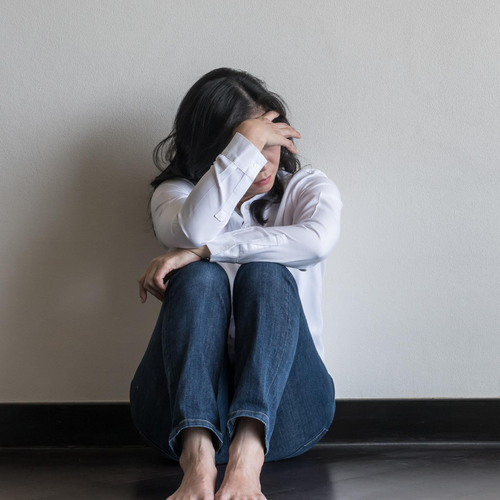*This article is written by midwife & perinatal mental health specialist Aliza Carr from Bumpnbub. However, please note this is general advice only and does not replace advice from your health professional. If you are experiencing a mental health condition, you should seek personal and professional help.*

Postnatal Depression
Becoming a mama is something that many women dream about for a long time before falling pregnant. It can be so exciting to dream about all things parenthood, what bub might look like, and the future you envisage for them.
As a midwife that has worked with hundreds of parents-to-be, I know that there is often so much focus and time spent thinking about the labour and birth (and rightfully so!).
However, I’m so passionate about opening up the discussion around what the ‘fourth trimester’ or postpartum period might look like, and ways in which education can help to make this transition easier. I also want to help parents to recognise when things deviate from the standard, such as when they experience postnatal mental health issues.
There are a variety of mental health difficulties and conditions that women can experience during the perinatal period (pregnancy AND the postpartum period). These include depression, anxiety, OCD, PTSD and postnatal psychosis.
Some of the common mental health triggers in pregnancy include a traumatic birth, previous mental health conditions, unplanned pregnancy and inadequate support. This is where I believe antenatal education can play a crucial part.
Women experience such a huge array of emotions around their birth - these feelings can include joy, empowerment and a sense of achievement. But for some women, these can be feelings of trauma, fear and anxiety. It is important for you to reflect on this, knowing that it is okay to have these feelings. The physical and hormonal changes our bodies endure post-birth are likely to cause strong emotions, including one such unexpected feeling - depression.
Have you heard about the ‘baby blues?’ If you have had a baby recently, you may remember feeling ALL of the emotions around day three postpartum - crying for no identifiable reason, extremely overwhelmed and utterly exhausted. As many as 70-80% of women will experience the baby blues after they give birth, and this can last up to 2 weeks or so postnatally. Your mind and body have gone through such a huge process and shift, and this is completely normal mama. During this time, prioritise your mental health with lots of self-care and asking for help when you need it.
What is Postnatal Depression?
Most women will have heard about the baby blues, but when does this morph into something more serious? According to research and my own experience as a midwife, the most significant barrier to mamas seeking medical help is not knowing what is ‘normal’ vs what is ‘abnormal’ and feeling a sense of guilt around their emotions.
It is estimated that roughly 1:7 women and 1:10 men will experience postnatal depression (these statistics are also likely underreported). Postnatal depression is classed as a diagnosis of depression within the first 12 months of a baby being born - which is another vital aspect to note. Some women may not experience any symptoms right away, but these may develop later on.
It can be incredibly isolating and scary as a new parent and knowing that you are never alone, and there is always help is a comforting thought.
So what are some common symptoms of postnatal depression?
- Losing interest or lack of interest in your baby
- Fatigue (a feeling of heaviness)
- Hopelessness
- Sadness
- Feeling overwhelmed
- Sometimes extreme thoughts such as that of suicide or self-harm or harming your baby (if you are experiencing any of these symptoms or know of someone that might be, please seek help from a medical professional ASAP)
Lack of sleep is completely normal after having a baby, and this can make you feel flat and irritable. It is important not to confuse this with PND. A good indication that you might be going through PND is if you find it difficult to sleep, even when you are tired and have the opportunity to rest.
As a new parent with postnatal depression, it can feel very daunting, and women often voice a lot of guilt around telling others how they are feeling and that perhaps they are not coping. One of the most important aspects to postnatal mental health conditions is being able to voice your concerns to a trusted partner, friend and or medical professional.
You are NOT alone, and by seeking help, you are doing the best possible thing for yourself and in turn, your baby. Something we as health professionals always reiterate is this does NOT make you a bad mother in any way. Just like millions of women in the world, you need some help, and that is 100% okay.
Postnatal disorders are treatable through counselling, psychiatric evaluation and when necessary, medication. There is no shame in seeking help for yourself, mama. I encourage you to share your feelings with someone as this is the first step in ensuring you do not feel alone in navigating your motherhood journey. If you want more information and helpful resources (and great helplines to call), please see below.
Here are some helpful resources for postnatal depression:
The Gidget Foundation: https://gidgetfoundation.org.au/
PANDA: https://www.panda.org.au/
PADA: https://pada.nz/postnatal-depression/
Lifeline: https://www.lifeline.org.nz/

